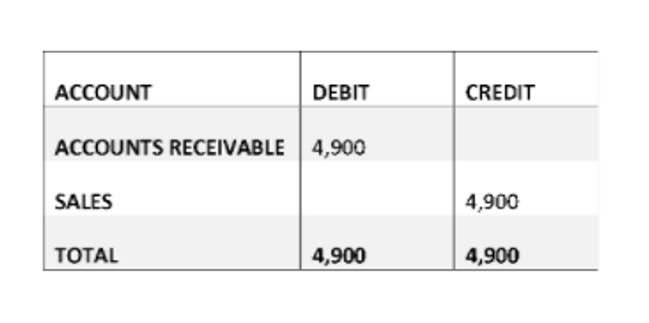
The program offers numerous integrations and an easy-to-use interface, even for those who aren’t tech-savvy. FreshBooks is available on both computers and mobile devices, so you can stay on top of your nonprofit organization at any time. The average price of outsourcing your bookkeeping ranges from about $2,000 to $3,500 per month depending on the number of transactions and complexity of services required. The average price of outsourcing your bookkeeping ranges from about $2,000 to $3,500 per month depending on the number of transactions and complexity of services required. The current average full-charge bookkeeper’s salary fluctuates between $34,000 to $54,000 per year plus benefits and overhead, according to Salary.com. Depending on your location, this number can be even higher, current listings in high-cost-of-living cities like New York or L.A.

In addition to these basic bookkeeping activities, your costs will be impacted by how your accounting systems, policies and procedures, and reporting needs are set up and administered. Growing businesses that offer credit to customers or request credit from suppliers use the accrual basis of accounting. Here, sales and purchases are immediately recorded even if there’s no exchange of cash involved until a later time.
Record every transaction
To fulfill your mission and impact the communities you serve, you have to raise and allocate funds wisely—That’s why bookkeeping for nonprofits is an essential part of what you do. FreshBooks is a high-quality accounting program that can automate repetitive tasks and daily activities and ensure accurate and reliable bookkeeping. nonprofit bookkeeping However, there are several actions all nonprofits need to take to ensure data quality and reliability. Nonprofit organizations have a tax-exempt status with the Internal Revenue Service (IRS). Whether you spend one dollar on paper clips or $1,000 on a venue for a fundraiser, every transaction must be recorded.
- To balance the books, you need to carefully monitor the assets, liabilities, and equity.
- This section regulates the tax status of charities, religious organizations, and nonprofits.
- Outsourcing can provide advanced and less costly bookkeeping services than a typical in-house bookkeeper.
- They typically are performing basic bookkeeping duties and will need to be heavily supervised and managed.
- Accounting, on the other hand, is using that information to provide a detailed analysis of your finances.
- You can always ask your bank about your account options and use those tailored for nonprofits.
Nonprofit accounting and bookkeeping revolve around representing an organization’s financial records in compliance with generally accepted accounting principles (GAAP). Finally, board members are personally liable for their custody of the nonprofit organization’s assets. You want to ensure your back office is run smoothly and efficiently to ensure the errors & omissions policy that protect you is always paid up and that your financial reporting is handled accurately and compliantly. A full-time bookkeeper handles the day-to-day accounting functions for your office.
Single-Entry Bookkeeping
In the retained earnings account, bookkeepers monitor any profit the company makes that isn’t paid out to owners and investors. As with the Balance Sheet, bookkeepers are also responsible for tagging transactions under the right accounts in the Income Statement. Bookkeepers track the materials and goods purchased for the business in the purchases account.
Outsourcing also offers many benefits that you can’t get with an in-house bookkeeper. If basic bookkeeping is all that your organization needs, you’ll need to decide whether to do the bookkeeping in-house or if you should outsource. If you decide to hire and manage a bookkeeper, you’ll also have to decide whether the position is part-time or requires a full-time, full-charge bookkeeper. This is when you’ll need more advanced bookkeeping, accrual-based accounting, and management and board reporting to help you make data-driven decisions that drive your mission forward. You should also hire a financial officer or a treasurer who knows how to do bookkeeping for a nonprofit and is familiar with specialized accounting software.
Pay Attention to Tax Obligations
Fortunately, nonprofit professionals don’t have to worry about your financial information if you choose FreshBooks. For example, a lawyer may review a contract for your nonprofit and refuse to charge a fee. A purchase order is a document a purchaser (in this case, a nonprofit) sends to a vendor to confirm the purchase of different goods and services. One of the first things we need to clarify before digging deeper into bookkeeping for a nonprofit is the difference between nonprofit and for-profit entities. GrowthForce accounting services provided through an alliance with SK CPA, PLLC. So, relying on them to operate the back office can lead to costly mistakes with tax filings and donation tracking.

In addition, you’ll need to add around 20% on top of salary, for benefits and overhead, including office space. Those systems will also be more capable of meeting the expectations and demands of public- and private-sector funders, who, increasingly, are insisting on more accountability from their nonprofit grantees. Adding this responsibility to an existing staff member’s to-do list will likely overwhelm your employees, and your books won’t get the undivided attention they need. That’s why your first step in the bookkeeping process should be finding a bookkeeper (and evaluating your outsourcing options). It’s important to keep payroll expenses accurate and updated to ensure the business meets legal requirements.
For example, large organizations like universities often have dozens, if not hundreds, of bank accounts for different purposes like scholarships, tuition, projects, etc. For-profit entities are individuals, corporations, or partnerships that conduct business for profit. In this case, shareholders, investors, tax authorities, management, and suppliers are interested in the entity’s financial position, and that’s what for-profit accounting focuses on. The financial insights made available through a robust back office will help you identify, measure, and track key performance indicators that can help you determine the best way to use your resources to accomplish your mission. Hourly rates for internal, part-time bookkeepers average between $18-23 per hour depending on job description and location. They typically are performing basic bookkeeping duties and will need to be heavily supervised and managed.

